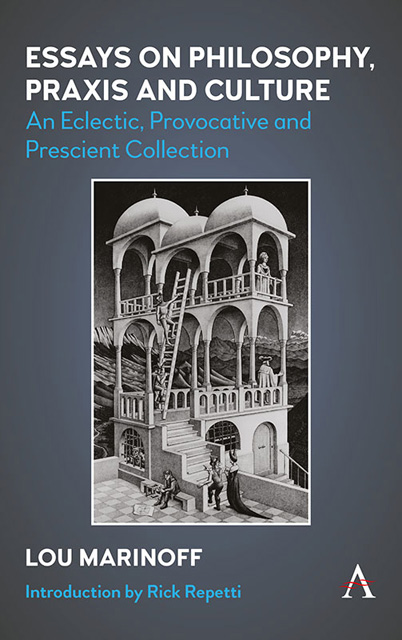Essay #11 - Biological Roots of Human Conflict, and its Resolution via Cultural Evolution
Published online by Cambridge University Press: 10 January 2023
Summary
An abbreviated version of this article was originally presented at the 6th International Conflictology and Peace Conference, 4 October 2013, at the Open University of Catalonia, Barcelona.
The fuller version was published as Lou Marinoff, “Biological Roots of Conflict, and Its Resolution via Cultural Evolution,” The Journal of Conflictology 5, no. 2 (2014): 2–13.
It is republished here by permission of the Open University of Catalonia.
The biological roots of human conflict are evolutionarily ancient, and correspondingly deep. Fortunately, some of our most destructive human tendencies can be mitigated or obviated by cultural evolution. But since culture is to biology as software is to hardware, one must correctly understand the biological nature of conflict in order to nurture effective resolutions, and beyond that to build enduring cultures of peace. This paper focuses on the biological roots of human conflict. A sequel would focus on conflict resolution via cultural evolution.
Negentropy and the Struggle for Survival
It was quantum physicist Erwin Schrödinger who first identified “life” as an improbably well-organized assembly of matter, marked by the unique capacity to resist entropy, at least for a while. Entropy is non-recoverable energy necessarily expended by any and every physical system, which renders all such systems less than 100 percent efficient. Caught in the slipstream of entropy, all systems (starting with our universe) move toward states of increasing disorder. Life is the great exception to this law, for living beings—at least from birth to maturity—move toward states of increasing order, manifesting negative entropy, or negentropy, in the process. Normally, negentropy wanes and entropy waxes only after a period of biological maturity, as all living beings sooner or later slide into senescence, decline, and death. After death entropy takes over with a vengeance, first dissolving then chaotically scattering the constituent elements of what was once a living being. (A precious few bits and pieces may enjoy non-sentient longevity as fossils.) It is this ability temporarily to reverse and defy entropy that characterizes the biophysical dimension of life.
One inevitable transaction cost, however, becomes apparent across much of the spectrum of living entities: Beyond a certain level of complexity, living entities are obliged to sustain their negentropy by removing order from their environments and returning disorder to them.
- Type
- Chapter
- Information
- Essays on Philosophy, Praxis and CultureAn Eclectic, Provocative and Prescient Collection, pp. 205 - 222Publisher: Anthem PressPrint publication year: 2022



